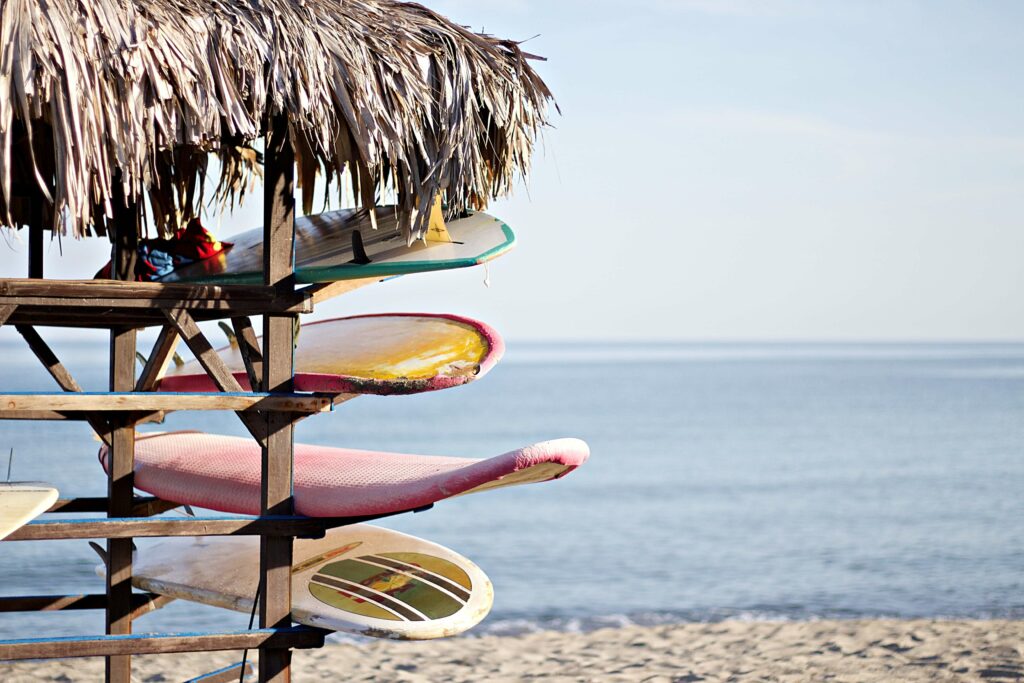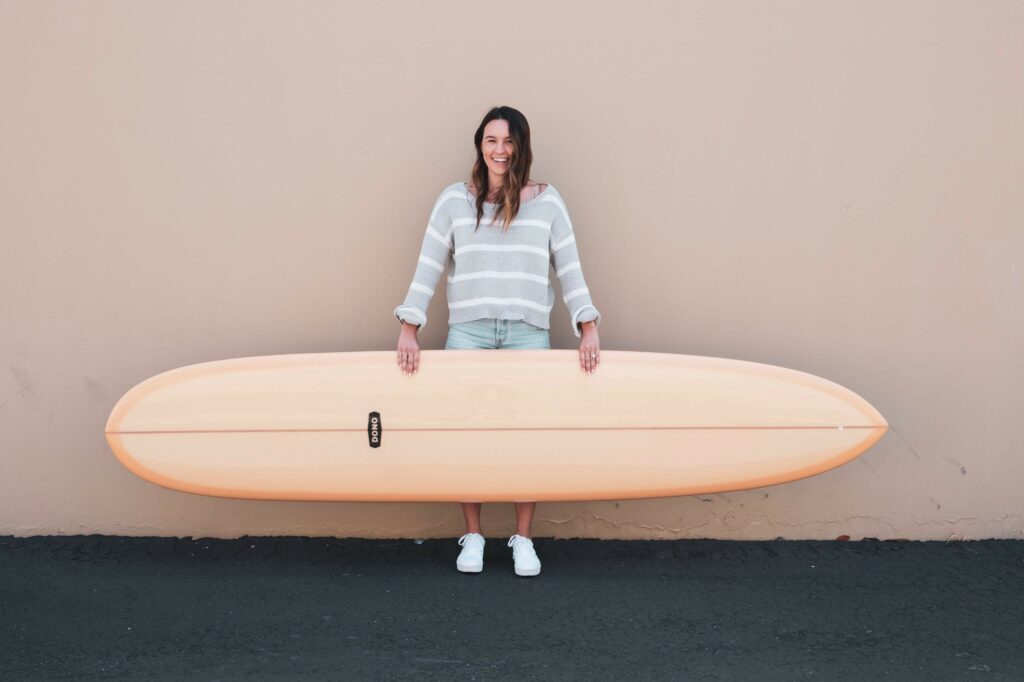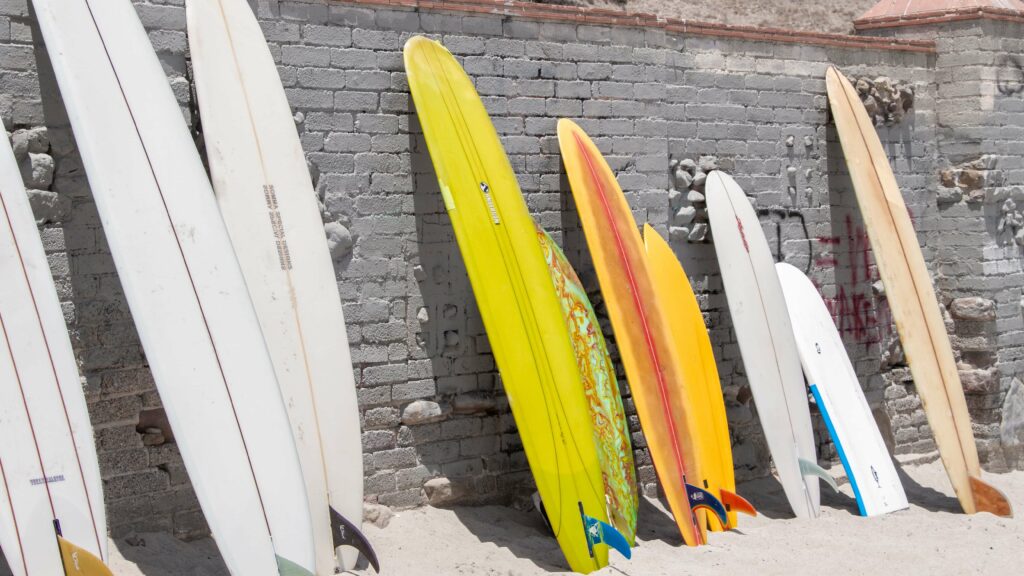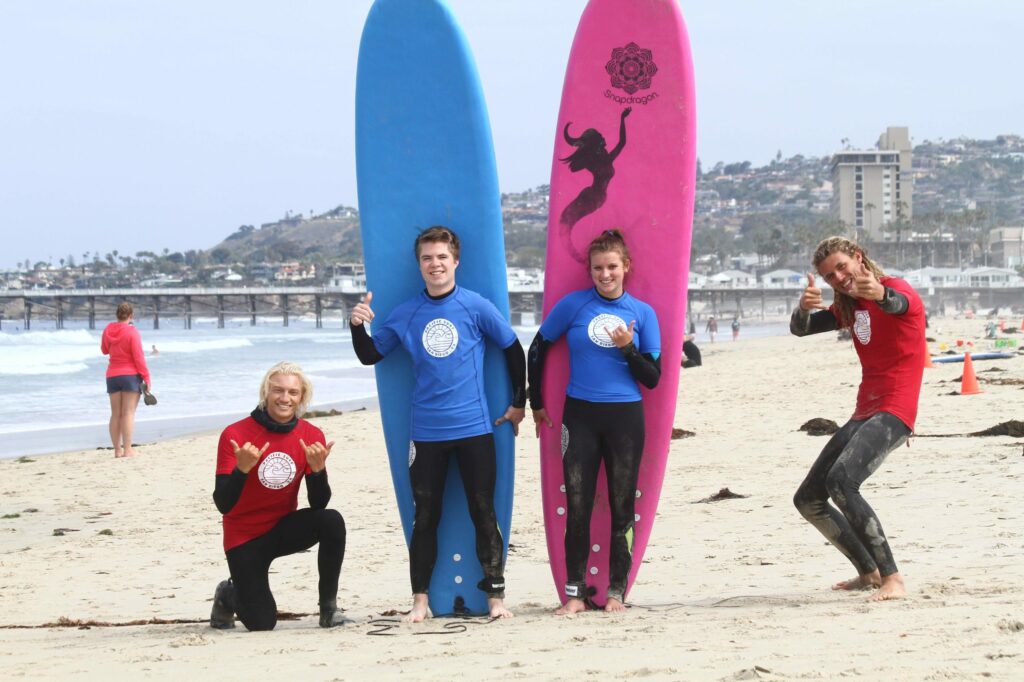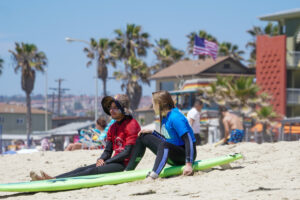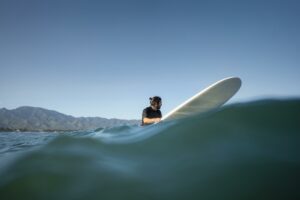Choosing the Right Surfboard as a Beginner
Surfing is an exhilarating sport that requires the right equipment, especially for beginners. Choosing the right surfboard can make all the difference in your surfing experience. As a beginner, selecting the best surfboard that fits your skill level and style can be a daunting task. That’s why we’ve created this guide to help you choose the best surfboards for beginners.
Understanding the Different Types of Surfboards
Before diving into the details of choosing the best surfboard for beginners, it’s essential to understand the different types of surfboards. Surfboards come in a variety of shapes and sizes, each designed for a specific type of wave and surfing style.
Here are some of the most common types of surfboards:
Shortboards
Shortboards are the most popular type of surfboard and are designed for experienced surfers who want to ride high-performance waves. These boards are lightweight, narrow, and have a pointed nose and tail, making them easy to maneuver in the water. However, Shortboards are not recommended for beginners as they require a lot of skill and experience to ride.
Longboards
Longboards are one the best options for beginners who are just starting their surfing journey. These boards are longer, wider, and thicker than shortboards, making them stable and easy to paddle. Longboards are ideal for small and slow waves, and they are perfect for learning the basics of surfing.
Funboards
Funboards are a hybrid of shortboards and longboards, offering the best of both worlds. These boards are typically around 7 to 8 feet long and have a wider nose and tail than shortboards, making them more stable and easier to paddle. Funboards are a great choice for surfers who want to ride a variety of waves and styles.
Foam Boards
Foam boards, also known as soft-top surfboards, are a popular choice for beginners and surf schools. These boards are made of foam and feature a soft, forgiving surface that is less likely to cause injury. Foam boards are also buoyant and easy to paddle, making them a great choice for learning how to surf.
Fish Boards
Designed with a wide nose and swallowtail, fish boards provide maximum stability and maneuverability. This makes them ideal for novice surfers who are still learning the basics of wave-riding. The shorter length also allows you to catch waves more easily and make faster turns in smaller surf conditions.
Gun Boards
Gun boards are generally longer than other types of surfboards and feature a pointed nose and tail, along with plenty of volume throughout their length. This gives them excellent stability, allowing beginners to maneuver comfortably in the water while learning how to control their board and stand up on waves.
Which Type of Surfboard is the Best for Beginners?
The best type of surfboard for beginners is typically going to be a longboard or foam board. Both offer excellent stability and buoyancy, making it easier for beginners to catch waves and stand up on the board. Funboards can also be a good option for beginners who want to progress their skills quickly, while shortboards should be avoided until you have advanced surfing skills.
Top Surfboards for Beginners Picked by Our Experts
After considering the different types of surfboards and factors to consider, we’ve compiled a list of the top surfboards for beginners:
- Wavestorm 8′ Classic Surfboard: This foam board is perfect for beginners because it’s affordable, durable, and easy to ride. Its soft top provides extra stability, making it easier to balance and maneuver.
- South Bay Board Co. Soft Top Surfboard: This foam board is made from high-quality materials and is designed to last. Its soft top provides extra cushioning, making it comfortable to ride.
- BIC Sport DURA-TEC Surfboard: This surfboard is perfect for beginners because it’s durable and easy to ride. Its thick rails and rounded nose provide extra stability and buoyancy, making it easier to balance and catch waves.
Choosing the Best Surfboard for Beginners
Now that you understand the different types of surfboards, it’s time to choose the best option for you. Here are some tips to help make the process easier:
- Determine your skill level: Are you a beginner, intermediate, or advanced surfer? Knowing your skill level will help determine the best type of surfboard for you.
- Consider your budget: Surfboards can range in price from a few hundred dollars to several thousand, so it’s important to consider your budget before making a purchase.
- Research different shapes and sizes: The shape and size of the board will affect its performance in the water, so it’s important to research different models before buying.
About Pacific Surf School
At Pacific Surf School, we believe that surfing is more than just a sport; it’s a lifestyle. Our mission is to share this passion with others by providing exceptional surfing experiences that inspire and excite. we offer a variety of services that cater to surfers of all levels. Whether you’re a beginner looking to catch your first wave, or an experienced surfer looking to fine-tune your skills, our experienced and knowledgeable instructors are here to help.
We offer private, semi-private, and group surf lessons for beginners and advanced surfers alike. Our experienced instructors provide personalized instruction to help you progress in the sport. We also offer wetsuit and surfboard rentals to make it easy for you to get started.
Learn to Surf With Pacific Surf
Choosing the best surfboard for beginners is an essential step in progressing in the sport of surfing. Consider the different types of surfboards, factors to consider, and our list of top surfboards for beginners when making your decision. At Pacific Surf School, we’re here to help you get started on your surfing journey with personalized instruction and quality equipment.
With multiple locations across California, including San Diego, Los Angeles, Pacific Beach, La Jolla, Mission Beach, Manhattan Beach, Huntington Beach, Santa Monica, Santa Cruz, and more, you’re sure to find a beautiful location that suits your needs.
So why wait? Contact us today to book your surfing lesson with us and start your journey to becoming a skilled surfer. We hope to see you out on the water!
FAQs
As a beginner, you should look for a surfboard that is large, stable, and easy to paddle. A longboard or a funboard is a good choice since they offer stability and buoyancy. The length of the board should be at least 2 to 3 feet taller than your height, and the width should be at least 20 inches.
A soft top surfboard is also a good option since they are more forgiving and have a softer surface that can prevent injuries. As a beginner, you should also look for a board with a rounded nose and tail, which makes it easier to turn and maneuver.
As a beginner, you don’t need to spend a lot of money on a surfboard. You can find good quality surfboards for beginners for around $200 to $500. However, if you plan on surfing frequently, investing in a higher-quality surfboard can be a good idea since it will last longer and provide better performance.
It can be a good idea to buy a used surfboard as a beginner since it is more affordable, and you won’t feel as bad if you damage it while learning. However, you should make sure the used surfboard is in good condition and has no major damage or dings. If you decide to buy a new surfboard, make sure to buy from a reputable surf shop that can provide you with advice and support.
It is recommended that beginners buy a surfboard in-person rather than online. This way, you can see and touch the board, and get advice from the surf shop staff. They can help you find the right board for your skill level and give you advice on how to take care of it. However, if you are experienced with surfboards and know exactly what you want, buying online can be an option.
The most common mistake beginners make when choosing a surfboard is selecting a board that is too small or too advanced for their skill level. This can make it difficult to catch waves and hinder your progress. Another mistake is buying a board based solely on its appearance or brand without considering its size and shape. Lastly, beginners often forget to consider environmental factors such as the waves, water temperature, and currents, which can affect the board’s performance.

